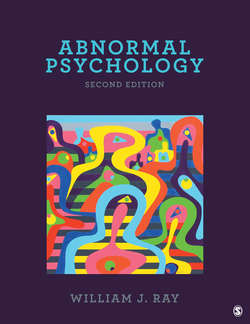Читать книгу Abnormal Psychology - William J. Ray - Страница 161
На сайте Литреса книга снята с продажи.
Assessing Cultural Dimensions
ОглавлениеOver the past 40 years, there has been an increasing awareness that mental illness takes place within the context of a particular culture (Henderson et al., 2016; Marsella & Yamada, 2007). Initially, there was a realization that specific disorders such as depression, schizophrenia, and stress-related disorders are understood differently in different cultures (Draguns, 1973; Draguns & Tanaka-Matsumi, 2003). That is to say, a fuller understanding of mental illness requires an understanding of context. Although every culture has words for severe mental illness such as psychosis, mood disorders such as depression, and anxiety, there is also variation in what is considered normality and deviance. Cultural LENS: Empirically Supported Research Approaches and Cultural Competence notes that culture not only informs one as to how to view one’s distress but also influences how that distress is expressed.
Cultural Formulation Interview (CFI): a set of questions developed to help mental health professionals obtain information concerning the person’s culture and its influence on behavior and experience
With DSM–5, a Cultural Formulation Interview (CFI) has been developed to help mental health professionals obtain information concerning the person’s culture. In general, the CFI focuses on five domains. These are described in DSM–5 as follows:
Cultural identity of the individual—This domain in DSM–5 describes how the individual sees himself or herself in terms of ethnic, racial, or cultural identity. It can also include how connected the person is with the culture of origin.
Cultural conceptualizations of distress—This domain refers to how the person’s culture would influence his or her experience of the disorder. For example, different types of symptoms might be more acceptable in one culture than another. Also, some individuals may be unwilling to describe the experience they are having in certain aspects of their lives.
Psychosocial stressors and cultural features of vulnerability—Psychological concerns, as noted in Cultural LENS: Empirically Supported Research Approaches and Cultural Competence, vary by culture. Likewise, the amount of support offered by the family and community also vary. In conducting an interview, the mental health professional needs to obtain an overall picture of the individual’s social environment with an emphasis on how cultural elements affect the presentation of a particular distress or disorder.
Cultural features of the relationship between the individual and the clinician—This domain emphasizes how the relationship between an individual and a mental health professional can be influenced by cultural factors. If a person has experienced negative situations with those of authority in the world outside of the interview, this could influence how the person relates to the mental health professional. Likewise, if the culture places a high regard on health professionals, then the person may not correct or interrupt with additional information during the interview. This domain would also include how the person expects to be treated by the mental health professional and expectations for future treatment.
Overall cultural assessment—This domain represents an overall assessment and implications of what was identified in the previous domains. Treatment preferences can be described that may be incorporated into the treatment plan.
Understanding the cultural context of a disorder helps increase the validity of the assessment and diagnosis procedure. The CFI asks 16 questions related to culture indirectly. For example, the mental health professional would ask the person how his or her family, friends, or community view what is causing the problems. In this manner, people can describe their understanding of their problems with a direct or indirect reference to their culture.
Cultural Lens
